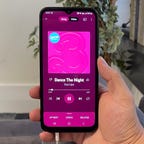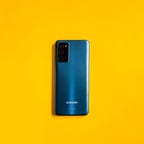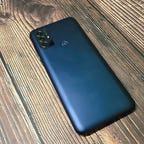Phones that cost under $200 are becoming more functional than they were in the past. The newest phones in this price range, like the Samsung Galaxy A14 5G, are starting to incorporate 5G support for faster data and NFC for contactless payments. Other phones, like Motorola’s Moto G Stylus, are becoming better media machines, providing stereo speakers to improve audio quality while including cameras that take decent photos.
Yet these cheaper phones do have a number of noticeable trade-offs: They usually run slower than more expensive phones, and while they will usually ship with the latest version of Android, there might be only a short window of security update support. That last issue is particularly important to keep in mind when shopping in this price range, as it’s risky to use a phone that’s no longer being protected against security vulnerabilities by its manufacturer.
While we wouldn’t consider any of these picks to be productivity machines, these phones are likely going to be more useful than you would expect for the price. Plus, some of these devices might end up being “free” when signing up with a phone carrier’s subsidization program — usually requiring a two-year commitment in order to get the cost covered.
What’s the best phone under $200?
The $200 Samsung Galaxy A14 5G is our current top pick for the best phone under $200. This is largely because of its inclusion of 5G support for faster data, NFC support for contactless payments, and a fairly generous software and security support timeline compared with other phones in this price range. Samsung will be providing two years of software updates and five years of security updates to the Galaxy A14 5G, making it a phone that can be safely used for several years if you choose to.
However we’re not crazy about its photography, and if that’s more important to you than 5G, you should also take a look at the $200 Moto G Stylus for its better camera quality.
If you need a phone that’s even cheaper, we’re also keeping around the $160 Galaxy A03S in this list. That device is still being supported by Samsung, but keep in mind that it has only a tiny 32GB of storage space.
Best phones under $200 of 2024
The $200 Samsung Galaxy A14 5G is one of the most functional phones under $200 available right now. Even though it’s at a budget-friendly price, this Samsung phone includes 5G support for faster data and NFC for contactless payments using Google Wallet. While both of those inclusions are highlights for this price range, Samsung is also planning to support the Galaxy A14 with two years of software updates and five years of security updates, making it a phone that will be safe to use for several years.
However you should still keep in mind that the phone does have trade-offs to hit its $200 price. It has a drab design, a slower processor and mixed photography performance. Yet despite its issues, the features it does include make it an easy recommendation if you’re buying the phone outright or if it’s offered for free with a carrier subsidy deal.
The $200 Moto G Stylus doesn’t have 5G but instead includes a built-in stylus along with a decent 50-megapixel main camera. The Stylus did a nice job taking photos while I was in a variety of environments, including indoors and outdoors. I particularly enjoyed the phone’s take on Portrait mode, and it captured a clear photo of the plant wall in CNET’s New York office that I use for photo testing. The 6.5-inch 720p display is also able to run at a consistent 90Hz refresh rate, providing smooth animations while navigating apps and reading websites.
The phone is otherwise let down by Motorola’s software and security update policy for its G series of phones, covering only one software update and three years of security updates. That, combined with the lack of 5G or NFC, mean that while it’s a great choice for better pictures, there are a number of ways this phone could become left behind as the years pass. But if you’re planning on using this phone for only two to three years, you could get a lot of value out of this device.
Samsung’s Galaxy A03S at $160 (roughly £126, AU$240) could still be a great fit for someone looking for the cheapest possible phone that can handle most essential tasks. The phone’s 6.5-inch screen, capped at 720p resolution, is capable for reading the news, watching videos and playing games. Despite some performance lag found during our review, the phone is good at multitasking. But the phone’s tiny 32GB of storage space could fill up fast, so if you’re considering this phone, it may be worthwhile to think about expanding the storage with a microSD card.
The A03S, first released last year, is getting four years of security updates, meaning that there are still three left. It’s less clear how many Android version updates are scheduled, and unlike the newer A14, it doesn’t have 5G support or NFC. While those two benefits along with the A14’s 64GB of internal storage are worth the extra $30 price increase, you can still get some mileage out of the A03S if you’re simply looking for the cheapest Samsung phone possible.
The $170 Moto G Play’s best feature is how its 5,000-mAh battery can stretch itself to three days of battery life. However, beyond that, it’s important to disclose that this device is one of the more frustrating phones for under $200.
The phone’s MediaTek Helio G37 processor and 3GB of RAM had a challenging time loading apps, and its 32GB of space gets filled up quickly. The phone does include a microSD card slot for storage expansion. Photography was also consistently fuzzy, and the $160 A03S easily outdid the Moto G Play in my photography test.
Despite releasing in 2023, the Moto G Play ships with Android 12 and will receive only one software update to Android 13. It will also receive three years of security updates, which is standard for Motorola’s G series of phones.
Ultimately, while I am including this phone on the list due to its long-lasting battery — which is possibly due to how underpowered this phone feels — I would sooner point you to any other phone on this list before choosing the Moto G Play.
Every phone on this list has been thoroughly tested by CNET’s expert reviews team. We actually use the phone, test the features, play games and take photos. We assess any marketing promises that a company makes about its phones. And if we find something we don’t like, be it battery life or build quality, we tell you all about it.
We examine every aspect of a phone during testing:
- Display
- Design and feel
- Processor performance
- Battery life
- Camera quality
- Features
We test all of a phone’s cameras (both front and back) in a variety of conditions: from outdoors under sunlight to dimmer indoor locales and nighttime scenes (for any available night modes). We also compare our findings against similarly priced models. We run a series of real-world battery tests to see how long a phone lasts under everyday use.
We take into account additional phone features, like 5G, fingerprint and face readers, styluses, fast charging, foldable displays, and other useful extras. And, of course, we weigh all of our experiences and testing against the price, so you know whether a phone represents good value.
Read more: How we test phones
Try it before you buy it: It’s one thing to ogle over a phone, but it’s another to actually try it out in a store.
Decide on Android or iPhone: Do you have a lot of iPhone apps and Apple subscriptions? Stick with an iPhone. Likewise, if you’ve invested in loads of Android apps, you’ll want to stay on that side of the fence. Otherwise, it’s simple enough to switch platforms.
Pick the most important feature: Is it screen size? Camera quality? Battery life? This will help narrow down your choices.
Samsung Galaxy A14 5G vs. Motorola Moto G Stylus (2023) vs. Samsung Galaxy A03S vs. Motorola Moto G Play (2023)
undefined
| Samsung Galaxy A14 5G | Moto G Stylus (2023) | Samsung Galaxy A03S | Moto G Play (2023) | |
|---|---|---|---|---|
| Display size, resolution | 6.6-inch FHD+ LCD display, (2,408 x 1,080 pixels), 90Hz | 6.5-inch IPS LCD; 1,600×720; 90Hz refresh rate | 6.5-inch HD+ LCD (720×1,600 pixels) | 6.5-inch IPS TFT LCD; 1,600×720 pixels; 90Hz refresh rate |
| Pixel density | 399 ppi | 269 ppi | 269 ppi | 269 ppi |
| Dimensions (inches) | 6.6 x 3.07 x 0.36 in. | 6.41 x 2.9 x 0.36 in. | 6.5 x 2.9 x 0.3 in. | 6.58 x 2.95 x 0.36 in. |
| Dimensions (millimeters) | 167.7 x 78 x 9.1 mm | 162.8 x 73.8 x 9.2 mm | 165.8 x 75.9 x 9.1 mm | 167 x 77 x 9.4 mm |
| Weight (grams, ounces) | 204 g (7.19 oz.) | 202 g (7.13 oz.) | 202 g (7.13 oz.) | 203 g (7.16 oz.) |
| Mobile software | Android 13 | Android 13 | Android 11 | Android 12 |
| Camera | 50-megapixel (main), 2-megapixel (macro), 2-megapixel (depth) | 50-megapixel (main), 2-megapixel (macro) | 13-megapixel (wide), 2-megapixel (depth), 2-megapixel (macro) | 16-megapixel (main), 2-megapixel (macro), 2-megapixel (depth sensor) |
| Front-facing camera | 13-megapixel | 8-megapixel | 5-megapixel | 5-megapixel |
| Video capture | 1080p at 30fps | 1080p at 30/60 fps | FHD (1920×1080 at 30fps) | 1080p at 30 fps |
| Processor | MediaTek MT6833V | MediaTek Helio G85 | Octa-core processor | MediaTek Helio G37 |
| RAM/Storage | 4GB + 64GB | 4GB + 64GB; 4GB + 128GB | 3GB/32GB | 3GB + 32GB |
| Expandable storage | Yes | Yes | Up to 1TB | Yes |
| Battery/Charger | 5,000 mAh | 5,000 mAh (15W charging) | 5,000 mAh (charger not included, does not support wireless charging) | 5,000 mAh (10W charging) |
| Fingerprint sensor | Side | Side | Side | Rear |
| Connector | USB-C | USB-C | USB-C | USB-C |
| Headphone jack | Yes | Yes | Yes | Yes |
| Special features | 5G-enabled, NFC, 15W charging | Stylus, Moto Gestures | 3-day battery life, Moto Gestures, Auto Smile Capture, Portrait Mode |
Are cheaper phones worth it?
What about phones that are even cheaper, like under $100?























+ There are no comments
Add yours